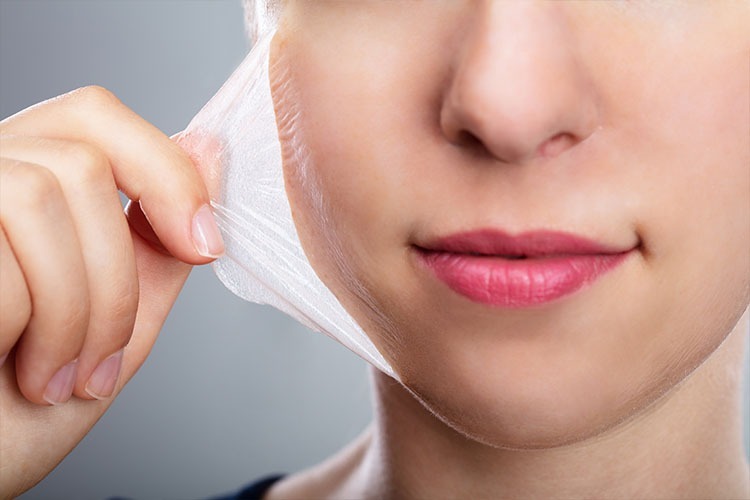
Therapr Team
If you’re looking to rejuvenate your skin, improve texture, or reduce signs of aging, a chemical peel might be the solution. Used for decades in dermatology and cosmetic practices, chemical peels involve applying a chemical solution to the skin that causes the outer layers to exfoliate and peel off, revealing fresher, younger-looking skin underneath. From mild peels for a glow-up to deep peels targeting severe sun damage, there's a type for every need and skin type.
A chemical peel is a controlled treatment in which an acid solution is applied to the skin to exfoliate dead skin cells and stimulate the growth of new ones. This process reveals smoother, more radiant skin and can significantly improve complexion issues like acne scars, pigmentation, and fine lines.
Peels can be applied to the face, neck, or hands and vary in intensity depending on the goals and skin concerns of the individual.
Superficial Peels:
Use mild acids (like alpha-hydroxy acids) to gently exfoliate the outermost skin layer. Ideal for improving skin tone and texture with minimal downtime.
Medium Peels:
Typically use trichloroacetic acid (TCA) to reach the middle layers of the skin. Suitable for treating wrinkles, acne scars, and pigmentation.
Deep Peels:
Use stronger acids such as phenol to deeply penetrate the skin. Best for severe wrinkles and sun damage but requires longer recovery and medical supervision.
Many people notice a visible improvement in their skin after just one session, with more significant results appearing after a series of treatments.
During the procedure, your skin will be cleansed and the peel solution applied. You may feel tingling, stinging, or mild burning depending on the strength of the peel. The process usually takes between 15 to 45 minutes.
After the peel:
Most people with fair to medium skin tones can benefit from chemical peels. However, those with very sensitive skin, active skin infections, or certain medical conditions may need to consult a dermatologist before undergoing the procedure. A professional evaluation will help determine the most suitable peel for your skin type and goals.
While generally safe when performed by trained professionals, chemical peels can have risks:
Always choose a licensed provider and follow post-procedure guidelines strictly to minimize risks.
Chemical peels are a powerful, science-backed solution for revitalizing your skin and addressing a variety of skin concerns. With different peel types available to match individual needs, they offer customizable results with relatively low risk. Whether you’re new to skincare or looking for a serious boost in your skin’s appearance, a professional peel might be the radiant refresh you’ve been waiting for.
Author profile
Read more articles by Therapr Team.

Get the latest wellness insights delivered to your inbox.
Subscribe to Newsletter